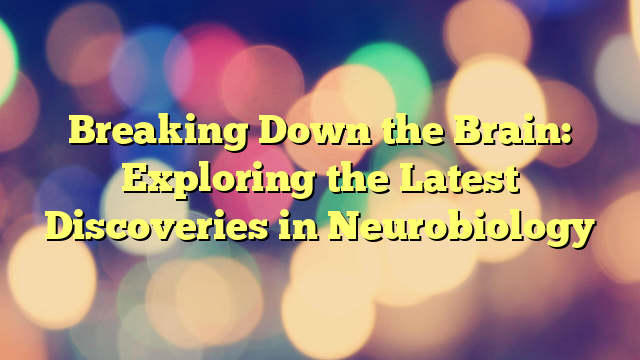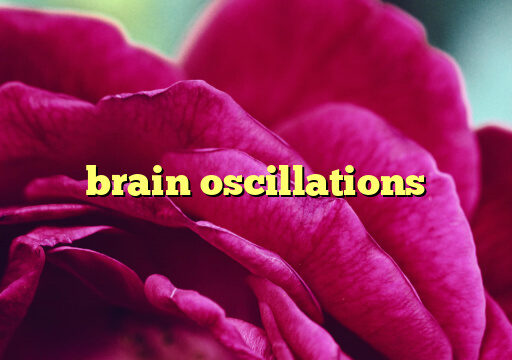Neurobiology is a fascinating field that seeks to understand the intricate workings of the brain and nervous system. In recent years, there have been significant advancements in our understanding of how the brain functions and how it can be affected by various factors. This article will explore some of the latest discoveries in neurobiology and their implications for our understanding of the brain.
The Brain: A Complex Organ
The brain is one of the most complex organs in the human body, consisting of billions of neurons that communicate with each other through electrical and chemical signals. These neurons form intricate networks that allow us to think, feel, and interact with the world around us. Neurobiology seeks to unravel the mysteries of how these networks function and how they can be disrupted in conditions such as Alzheimer's disease, Parkinson's disease, and stroke.
Latest Discoveries in Neurobiology
One of the most exciting recent discoveries in neurobiology is the concept of neuroplasticity – the brain's ability to reorganize itself by forming new neural connections in response to learning, experience, or injury. This has significant implications for our understanding of brain development, as well as for the treatment of neurological disorders.
Researchers have also made progress in mapping the brain's connectome – the network of connections between different regions of the brain. This has provided new insights into how different brain areas communicate with each other and how disruptions in these connections can lead to neurological diseases.
Another area of research that has garnered attention in recent years is the role of the gut-brain axis in influencing brain function and behavior. Studies have shown that the microbes in our gut can impact our mood, cognition, and even our risk of developing neurological disorders. This has opened up new avenues for treatment, such as probiotics and dietary interventions.
Conclusion
In conclusion, the field of neurobiology is constantly evolving, with new discoveries shedding light on the complex workings of the brain. From the concept of neuroplasticity to the role of the gut-brain axis, researchers are making significant strides in understanding how the brain functions and how it can be influenced by external factors. These discoveries have the potential to revolutionize our understanding of neurological disorders and pave the way for innovative treatments in the future.
FAQs
What is neuroplasticity?
Neuroplasticity is the brain's ability to reorganize itself by forming new neural connections in response to learning, experience, or injury.
What is the connectome?
The connectome is the network of connections between different regions of the brain, which provides insights into how different brain areas communicate with each other.
How does the gut-brain axis influence brain function?
The gut-brain axis refers to the bidirectional communication between the gut and the brain, with studies showing that the microbes in our gut can impact our mood, cognition, and risk of developing neurological disorders.
Unlock Your Mental Potential




